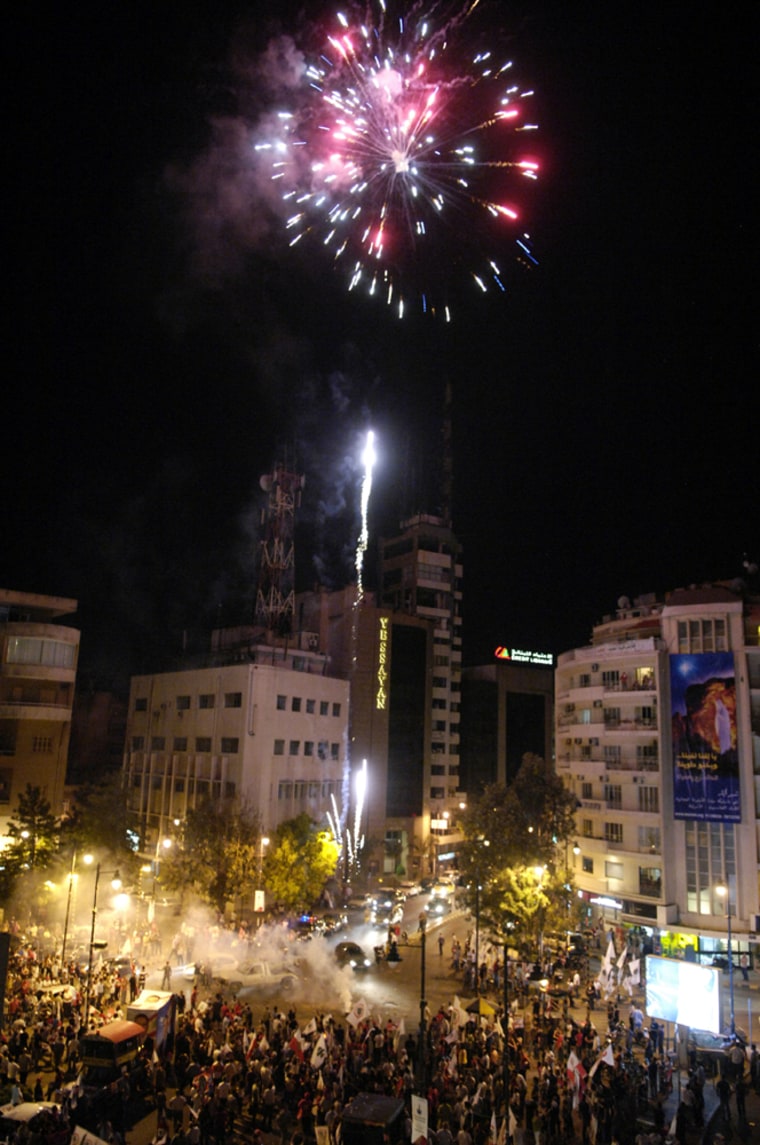Lebanon's Western-backed coalition defeated Hezbollah and its allies, according to official results Monday that dealt a stunning setback to the Iranian-backed militants and set the stage for renewed political deadlock in the volatile nation.
The winners celebrated in the streets, setting off fireworks and driving around in motorcades honking hours before the official results were even announced.
Sunday's parliamentary vote was an early test of President Barack Obama's efforts to forge Middle East peace. A win by Hezbollah would have boosted the influence of its backers Iran and Syria and risked pushing one of the region's most unsettled countries into international isolation and possibly more conflict with Israel.
"I present this victory to Lebanon," Prime Minister Fuad Saniora said on television after stations projected his coalition was winning. "It is an exceptional day for democracy in Lebanon."
Obama congratulated the Lebanese people in a statement for a peaceful national election held with "courage" and a "commitment to democracy."
"Once more, the people of Lebanon have demonstrated to the world their courage and the strength of their commitment to democracy," the Obama statement said, without reference to Hezbollah.
Same disputes to continueThe interior minister announced the final results from all 26 districts at a news conference. The tally showed the winning coalition with 68 seats versus 57 for the Hezbollah-led alliance. Three seats went to independents. The seat allocation is almost unchanged from the outgoing legislature, ensuring that the same disputes will continue to roil the political scene.
Boosted by its 2006 war with Israel, Hezbollah and its allies provoked a political crisis in 2007-2008 with demands for a voice in the government. They staged protests and installed an encampment in downtown Beirut that paralyzed the commercial heart of the Lebanese capital.
The showdown culminated in street battles that brought the country to the edge of another civil war.
An agreement to end the violent confrontation gave Hezbollah veto power over major government decisions.
This time around, the pro-Western coalition vowed not to give Hezbollah and its allies a blocking minority in the new government if they won, maintaining that the arrangement paralyzed decision-making. Hezbollah and its allies have countered that sharing power ensured peace.
A failure by the parties to agree on how to share power could set the stage for another round of confrontation that could again inflame sectarian tensions.
